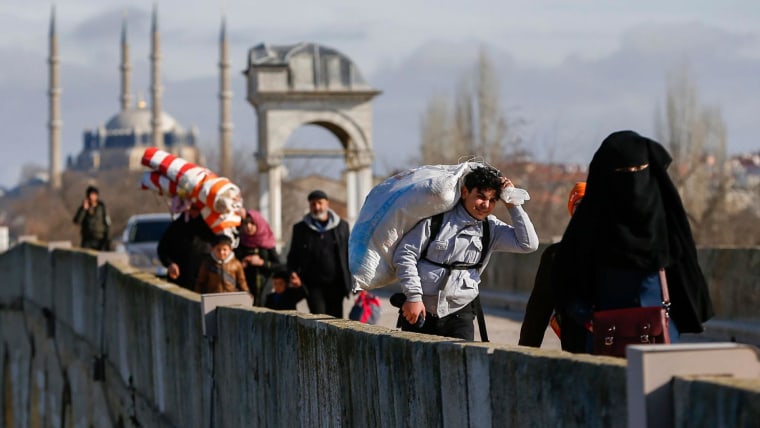A court has ruled that Istanbul’s iconic Hagia Sophia can be converted from a world-famous museum back into a mosque, in a big victory for the Islamic conservatism of Turkey’s President Recep Tayyip Erdogan.
Turkey’s top administrative court, the Council of State, ruled on Friday that a 1934 decision to convert the then-mosque into a museum was unlawful, according to Reuters, paving the way for its restoration as an Islamic place of worship despite international concerns.
Erdogan had proposed restoring the UNESCO World Heritage site into a mosque, placing the more than 1,400-year-old building at the center of a struggle between those who want to preserve Turkey’s secular roots and the president’s aspirations.
The sixth-century structure was the Byzantine Empire’s main cathedral before it was changed into a mosque following the Ottoman conquest of Istanbul. Mustafa Kemal Ataturk, the founder of the modern Turkish republic in the 20th century, then turned the majestic domed building into a museum that attracts millions of tourists each year.
Many in Turkey will welcome the decision, and see Friday’s ruling as an emphatic victory for Erdogan’s plans for the secular but predominantly Muslim country.
“Mehmet the Conqueror took the holy city with his sword, he always wanted Hagia Sophia to be a mosque,” Ozlem Kaya, a 52-year-old housewife from Istanbul said ahead of the decision, referring to the 15th-century Ottoman sultan who captured the city, then known as Constantinople.
“With Erdogan, Turkey will be a more powerful country in the near future,” she told NBC News by telephone. “There is no need to be secular anymore.”
Hagia Sophia’s is part of a centuries-old struggle over the identity of the region that sits on the fault line between the East and the West, and between Christianity and Islam.
The Ecumenical Patriarch Bartholomew, the spiritual head of some 300 million Orthodox Christians worldwide and based in Istanbul, said ahead of the ruling that converting Hagia Sophia into a mosque will “disappoint millions of Christians around the world” and will “fracture” the East and West.
“As [a] museum, Hagia Sophia can function as place and symbol of encounter, dialogue and peaceful coexistence of peoples and cultures, mutual understanding and solidarity between Christianity and Islam,” he said in a statement posted on Facebook last week.
Tuma Celik, a Syriac Christian and a member of Parliament with the Turkish pro-Kurdish party HDP, said he was against turning Hagia Sophia into a mosque. “This court decision has made what we all know and experience in reality very clear, that today’s Turkey is not secular,” the 56-year-old told NBC News via WhatsApp.
Founded in 1923, modern-day Turkey was built on the secular belief of separating religion and state.
However, almost a century later, the country continues to wrestle with how its secular governance intersects with the fact that it is predominantly Muslim. Turkey’s Christian community, for example, is believed to number around 100,000 people, a tiny fraction in a country of more than 83 million.
The conversion of the Hagia Sophia into a museum in the 1930s was seen as part of a broader effort by Ataturk’s government to secularize the country. Today, Erdogan is widely believed to be doing the opposite.
Since assuming power Erdogan and his Justice and Development Party, or AK Party, have made Turkey more religious and conservative, including by relaxing strict secular laws like allowing women to wear Islamic headscarves in schools and public offices.
Erdogan is not the first person to suggest the building’s status as a mosque should be restored. Thousands of Muslim Turks have prayed outside the building over the years to demand that it be reconverted into a place of worship.
But not everyone is convinced by what is driving the move.
Nearly 44 percent of the population think the move is designed to divert attention from the current economic crisis and nearly 12 percent think the government believes the debate will politically benefit them in case of a possible snap election, according to Turkish pollster MetroPoll. Only some 29 percent believe it is motivated by a desire to return the museum back into a mosque, according to the poll.
The Associated Press and Reuters contributed to this report.













